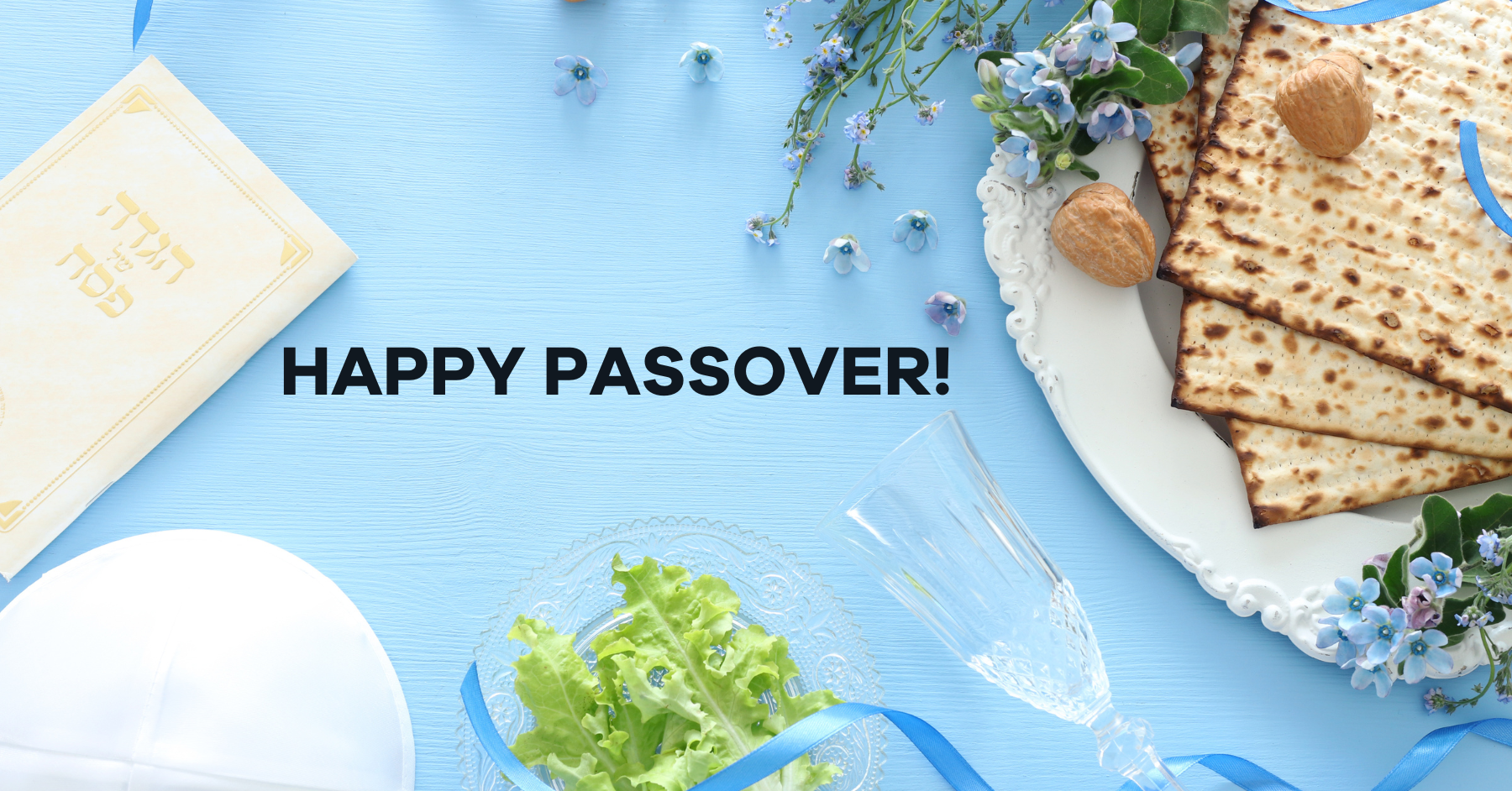By: Amanda Bowra
Passover, also known as Pesach in Hebrew, is one of the most widely celebrated holidays in Jewish tradition. It commemorates the Israelites’ incredible escape from Egyptian slavery. This year, Passover begins at sundown on April 22nd and ends after nightfall on April 30th.
History of Passover
Passover tells the story of Moses and how he led his people to safety after 400 years of slavery. Moses was an Israelite who, for fear of his life, was placed in a basket by his mother and sent to drift down the river, where he was found by the Egyptian Pharaoh’s daughter and raised in the palace as her own. As Moses grew older, he became more aware of the injustices being enacted against his people. One day, he came across a Jewish enslaved person being beaten by an Egyptian taskmaster and stepped in. In his attempt to rescue the poor soul, he accidentally killed the Egyptian. Leading him to flee the palace, where he married and became a shepherd. While working out on the land, he came across a burning bush through which God spoke to him. God told Moses that he would be the one to free the Jews from slavery.
Moses and his brother returned to the palace where he was raised and asked the Pharaoh to let his people go, but the Pharaoh refused. In response, God spoke to Moses again, warning that a series of plagues would befall Egypt until the Jews were free. Each time the Pharaoh refused their freedom, another plague would be unleashed. Moses kept coming back, and the Pharaoh kept refusing. In total, the Egyptians suffered ten plagues: The water of the Nile River turning to blood, frogs, lice, wild beasts, cattle disease, boils, hail, locusts, darkness, and finally, the slaying of all Egyptian firstborns.
It was when the Pharaoh saw the Israelites’ firstborn children were spared from this tenth plague that he finally agreed to grant the Jews their freedom. Upon hearing this news, Moses and his people packed up their belongings as quickly as they could and ran from Egypt with the Pharaoh and his army not far behind. It was at the edge of the Red Sea that the Egyptians caught up to the Israelites, meaning doom for the escaping people. At that moment, God spoke to Moses again, telling him to raise his staff across the sea. It was at this exact moment that the Red Sea parted, allowing all the Jews to walk across the dry land safely. The waters of the Red Seas came crashing back down in time to drown the Pharaoh and his army. Moses and his people went on to find safety at Mount Sinai, where they received The Ten Commandments from God.
How we celebrate
Passover comes from the Hebrew word Pesach, meaning “passed over.” It refers to the Israelites’ firstborns being “passed over” during the last of God’s plagues. Today, Passover is celebrated annually over seven or eight days to commemorate the hardships the Jews faced and their freedom from their Egyptian slavers.
The Passover celebration is marked by many traditions- one of the most fundamental being the Seder. This is a ceremonial feast held on the first, and sometimes second, night of Passover. During the Seder, the story of Exodus (as named in the Bible) is retold while sharing symbolic foods and rituals. Some of these rituals include lighting candles, blessing wine, dipping green vegetables in salt water, and eating bitter herbs and Matzah. Each act is meant to symbolize specific hardships, hopes, and histories of the Jewish people.
Passover has many other traditions that span the eight-day celebration. One of the most widely followed customs is avoiding leavened bread. Before the Israelites escaped from the Egyptians, families prepared provisions for their journey. But when the Pharaoh chased the Jews out of Egypt, the bread they were preparing did not have time to rise. This haste to escape is commemorated by avoiding leavened bread. This is where Matzah traditionally comes from.
Celebrating Passover also means attending a special synagogue service dedicated to Passover. This service involves specific readings from the Torah, reciting special prayers, and chanting the Song of Songs. During the first two and last two days of Passover, many families will abstain from work and other activities but may resume these acts on the days between. Many Jewish schools will close for the entire duration of the holiday so children may be home in observance.
Millions of people celebrate Passover every year worldwide. Traditions may vary depending on family, geographical location, and denomination, but the story of Pesach remains the same. Passover is a time for the Jewish community to reflect on the past, appreciate the present, and hope for the future.
Read more about Jewish history written by Wiss employees here.

 Previous
Previous






